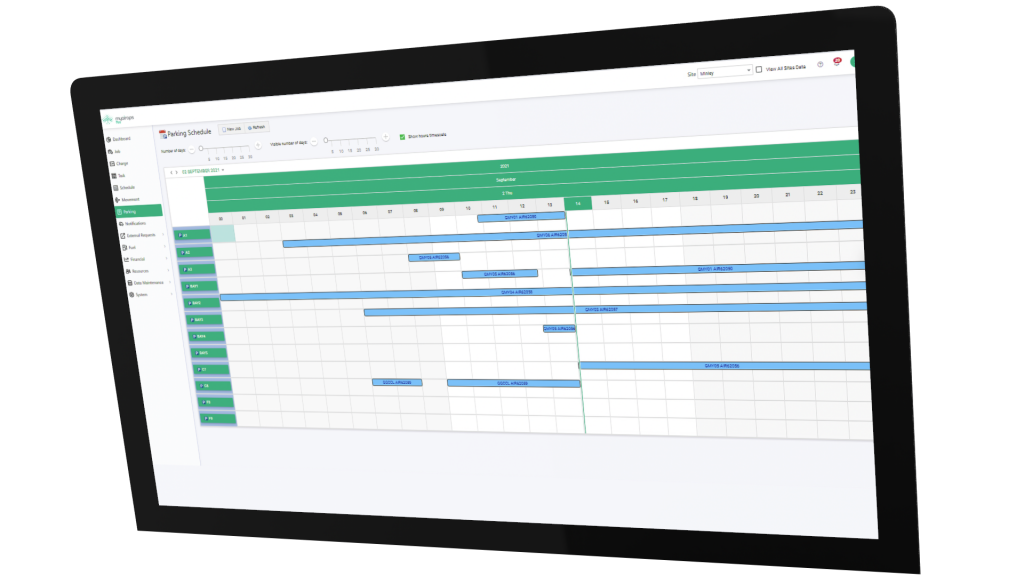Introduction
Operators and their VIP customers pass through your FBO expecting a seamless experience.
FBO Managers supervising individual sites and FBO Directors overseeing whole networks must ensure the best customer service is underpinned by the smoothest of service delivery.
FBO management systems are designed to support and improve the three critical elements of running a successful FBO.
Time.
Time is the first crucial element of business aviation and making your staff, service delivery and passenger journey more efficient will directly drive return business to your FBO. From the first request for a Ground Handling service through to seeing the aircraft take to the skies, your job is to ensure everything goes as smoothly and efficiently as possible.
Economy.
Cost and ease of payment typically make up the second consideration when an Operator is selecting an FBO. Your competitors may have the best looking FBO on the airfield and yet miss out on return business because their prices were much higher or there were problems for the Operator when paying. This article won’t suggest lowering your prices to attract business, instead an FBO system makes life easier for the Operator and so that it becomes an easier decision to make your FBO their preferred choice for doing business.
Quality.
The difference between you and the competition is often razor thin so it is increasingly the tiny attention to detail that customers pick up on, remember later and base their decision whether to use you again or go elsewhere. Client relationships, both Passenger and Operator, are ever more crucial to maintain and customer relationship management, long ignored by the FBO industry, must become a priority.
What is an FBO system?
Ground Handling specific software that arranges the scheduling and pricing of services, communicates with the Operator, Fuel Vendor, ATC and 3rd party suppliers, and manages billing and invoicing for the client. The system contains the customer relationship database, organizes staff tasking, and manages parking, fuel provision and many of the services at the FBO.
At the FBO software’s core is a database storing confidential but valuable Passenger and Operator information stored. It is imperative, both for your clients and for your compliance with law, that this system is secure with high levels of data protection, encryption and locked down access, especially should the FBO system be in use across multiple FBOs and hundreds of staff.
Why are FBO systems important? 2 cases of an FBO system proving vital.
Fraport AG
One of the leading players in the global airport business, Fraport AG spans four continents with activities at 31 airports worldwide. In its Mission Statement, Fraport places the focus on its customers and chose myairops fbo to enhance their work and customer satisfaction.
Upon implementation of the FBO system, Fraport were able to assign tasks, populate reports and communicate with Operators with just a few clicks.
This once took hours of work from multiple team members.
Through the power of workflow automation, Fraport can utilise the myairops fbo system and reduce the time taken to carry out tasks.
“myairops continues to save us hours per day across our entire team. By automating many of our tasks and workflows behind the scenes we’ve been able to streamline our processes and deliver services even more efficiently, allowing us to grow and handle further traffic.”
Kai Kowalewski, FBO Manager, Fraport.
“The integrations myairops provide allow us to connect our processes and other tools into one end-to end-solution. Integrations with our biggest clients for example, cuts out constant reading, entering requests – and updating with changes.”

The myairops solution has also helped Fraport through a particularly difficult time for the aviation industry.
“Having myairops there to support us has allowed staff to work safely from home and react quickly to the challenges presented to us by COVID-19.”
Melbourne Jet Base
Among the world’s most attractive FBOs, Melbourne Jet Base (MJB) is a stunning, world-class facility based in Melbourne, Australia. Sitting resplendent as a beautiful restoration exhibit, the Kanana Douglas DC-3 is overlooked by luxurious lounges and modern offices, connecting overseas and local travelers with Australia’s rich aviation history. Tradition and luxury are underpinned by modern, high-tech systems and assets, from Ops to the on-site Helicopter.

MJB recently decided to renew their myairops subscription for a further 36 months. Among the reasons for extending the relationship were the Parking Management capabilities.
“Parking is a valuable service we provide at MJB. We have Hangar capacity for 18 business aircraft and a 60,000sqm apron to compliment the Hangars. Especially at our busiest, like around the Australian Open, we have to be very efficient and organized to offer our clients flexible parking options. myairops helped us with that.”
Brayden Kettle, MJB Marketing and Business Director
In 2020 myairops scoped the parking requirements of MJB and several other clients to develop an intuitive Parking Board linked with service booking, automated billing and staff tasks.
“When a customer requests hangar or apron space, our team can glance at the parking board for the required date and plan what’s available or what needs to be moved around. It’s an easy process to rearrange aircraft to fit and then build that parking request into the overall handling request. We can make constant changes to the plan, and the customer’s quote or invoice is automatically updated with the correct fees feeding straight in.”

Time, Economy and Quality are the foundation of excellence at FBOs.
Reducing time for your Passengers, Operators and internally when delivering services, is a critical element in business aviation and the main reason VIP customers will return again and again.
FBO management systems enhance efficiency by digitizing and automating workflows during service delivery.
Communication and payment are made easier, making the Operator more likely to choose your FBO over a location with cheaper prices but no system in place.
A customer relationship management helps to improve the quality of customer service, as well as allowing loyalty discounts and other site or network wide deals to help retain business.
To learn more about how an FBO system supports these three critical elements to exemplary service read this blog about post-pandemic FBOs or check out myairops fbo – the system used by individual & network FBOs around the world.


![What is an FBO System? [2 cases where it made the difference] header image](https://myairops.com/wp-content/uploads/2021/11/MicrosoftTeams-image-1920x1080.png)


